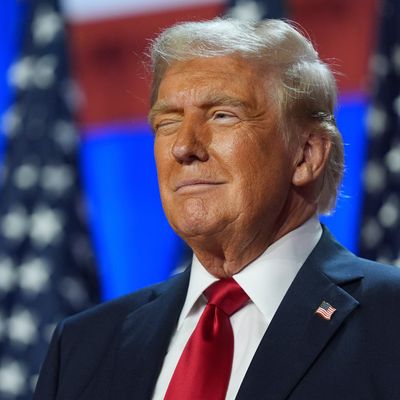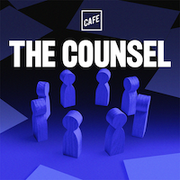
There’s no gentle way to put this, so let’s be direct: All four criminal cases against Donald Trump are effectively over.
Prosecutors may still take action to memorialize their findings for the history books and as a warning to the American public. But Trump will not face another trial, and he will not go to jail. He gambled his libertarian interests on regaining the presidency—a stunning all-or-nothing gamble—and he won.
Let’s start with the two federal cases. Trump has already done it announced that he will fire Special Agent Jack Smith “within two seconds” and Smith according to information have discussed within the DOJ their plans to settle the cases. There is an academic debate to be had about whether the president has the constitutional authority to fire the special counsel. Federal regulations provide that the prosecutor may terminate a special counsel, but the competing “unified managing director” The theory holds that the president is not only the head of the executive branch—he is the executive branch and can do basically whatever he wants within it. Either way, Trump has a simple solution: He will appoint an attorney general who will do his dirty work and fire the special counsel and the cases himself if necessary.
Smith faces another structural hurdle beyond Trump’s promise to fire him. Prolonged Department of Justice policy prohibits impeachment and prosecution of the sitting president. We have never before come across a scenario where the subject of an investigation – or in this case, an actual prosecution – has be the sitting president during the case. But here we are. And Smith seems to realize that, whether he’s fired or not, his case must end when Trump takes the oath of office on Jan. 20.
Smith still has two and a half months left on the job, but he won’t have a meaningful opportunity to do much of substance in the courtroom between now and Inauguration Day. Both of his cases have been stuck in appellate purgatory; the Jan. 6 case remains mired in litigation over the scope of Trump’s immunityand the case of classified documents has been dismissed entirely because the district judge considered the entire regime of special counsel to be unconstitutional. Trump will be back in office long before any of the problems are fully resolved.
But Smith still has an opportunity left to make his case, at least on paper. According to the aforementioned regulations, a special counsel must write a final report with the results of his investigation and prosecution or rejection decisions. Usually, a special counsel would not write the report until the end of his case, preferably after the trial. But Smith may reasonably decide — based on Trump’s public declaration of intent to close both cases and the DOJ’s policy against indicting the sitting president — that writing the report now is appropriate. It is unclear whether we would learn much that is revelatory or new; Smith has already provided detailed indictments in both cases and an exhaustive 165-page recitation of his evidence in the 2020 election case. But if he wants to create documents formally detailing his results in full, he will have an opportunity to do so before his term ends.
If this feels like thin gruel to someone hoping for a full review of the allegations through trial, it is. Some blame Trump for his delay strategy. But it’s like an NBA coach accusing his opponent of trying to block all of his team’s shots; that’s how the game is played. With Trump’s personal freedom on the line, his lawyers raised constitutional defenses that any semi-competent defense attorney would raise—and they won. It’s not foul play, and it’s not their “fault” that these cases will never go to trial. They did their jobs.

Listen to The councilman podcast
Subscribe to:
If you want to shift the blame, consider this: “Every day that passes makes a potential federal indictment of Trump less likely to happen and more strained on the Justice Department if it does … Debate is sure to rage over whether AG Merrick Garland has meaningful and pragmatically set sights on Trump. At some point we will find out. Regardless of what happens, the delay in reaching a solution is counterproductive and inexcusable.” It’s something I wrote in May 2022 — six months before Garland appointed Smith and a year and three months before the DOJ finally began filing charges. It should come as no surprise that the clock ran out.
Then we have the two state goals in New York and Georgia. We’ve seen plenty of surreal courthouse scenarios in recent years, and we’re weeks away from an all-timer: the Nov. 26 sentencing of the president-elect in Manhattan. Trump’s team according to information will ask the judge to vacate the sentence, and they’ve offered him various legal off-ramps so it might not happen at all. If that continues, it’s about a 50-50 toss-up whether the judge will sentence Trump to prison. But even if he does, it will be purely ceremonial. There is no way the president-elect will be locked up during the transition period or his presidency, and a normal defendant in Trump’s position would likely be granted bail pending appeal anyway (meaning the right to appeal before serving any sentence).
Finally, there is the Fulton County District Attorney’s 2020 election meddling. This one is already on the verge of collapsing under its own weight. The trial judge has thrown out five of the 13 original charges against Trump. And a Georgia appeals court is now considering DA Fani Willis’ alleged conflict of interest (stemming from her relationship with former lead prosecutor Nathan Wade) and prosecutorial misconduct (for her inflammatory out-of-court statements about the case, which trial judge appointed “legally improper”). The signs are ominous for the district attorney.
Once again, we face a vexing constitutional question: Can a state impeachment proceed against a sitting president? Again, look for intellectually stimulating legal arguments from brilliant scholars. But I end the suspense: It doesn’t work. If state-level authorities in New York try to imprison the sitting president, or if Georgia courts try to impeach him, the federal courts will block it under Force majeure clauseor the lesser known You-Must-Be-Kidding-Me clause. Our executive branch simply cannot function and cannot enforce the law of the land effectively with the commander in chief tied up in court or behind bars – on state charges, no less.
Theoretically, both state cases could be put on hold until Trump’s term ends in January 2029 and reopened then. But Trump would have an argument that such a delay would impair his right to a speedy trial (even if the delay is due to Trump’s own status as president). And again we have to consider the practicalities. Are we really going to see DAs at the state level (whoever they are four years from now) trying to jail an 82-year-old, two-term former president for behavior that happened 13 years earlier (as in the hush money case)?
We’ll have plenty of time to reflect on the point of it all, and it’s really hard to fathom that Trump is going to skate entirely for everything he’s done. But a close look at the practicalities of prosecuting the former and future president dictates that this outcome was in play all along. As it turns out, in our courts, harsh political reality has a way of winning out over high-minded aspirations.
This article will also appear in free CAFE Card newsletter. You can find more law and policy analysis from Elie Honig, Preet Bharara, Joyce Vance and other CAFE contributors at cafe.com.
